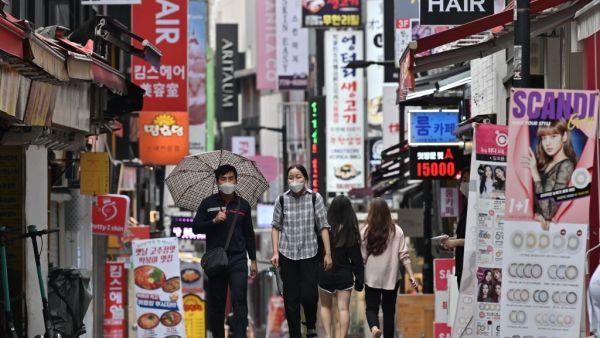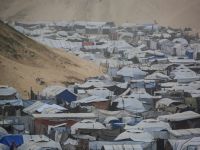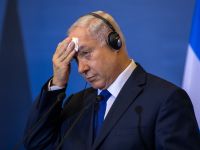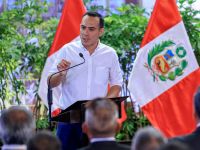South Korea reported 441 new COVID-19 cases on Thursday, the first time the number of daily infections has surpassed 400 since early March, as an outbreak that was centered around the Seoul metropolitan area is rapidly spreading nationwide.
After daily local infections had dwindled to single digits earlier this month, South Korea has seen a surge in new cases over the past two weeks, driven by a large cluster at a church in northern Seoul and further spread at an anti-government rally held on Aug. 15.
At a briefing on Thursday, senior health ministry official Yoon Tae-ho expressed concern over the growing number of clusters around the country and cautioned that the government may further tighten social distancing efforts to combat the virus.
"The cluster infections that have been taking place in the metropolitan area are increasing through chain transmissions to other areas as well," Yoon said.
According to the Korea Centers for Disease Control and Prevention, 434 of Thursday's reported cases were locally transmitted, with 313 in the greater Seoul area and 121 in cities and provinces around the rest of the country.
Health officials have already raised social distancing restrictions to combat the outbreak, moving the entire country to Level 2 on a three-tier scale last Sunday, which prohibits indoor gatherings of more than 50 people and outdoor gatherings of more than 100.
Public facilities and high-risk locations such as nightlife venues have had to shut down, while professional sports leagues have returned to playing games in empty stadiums. In-person religious services have also been temporarily halted and earlier this week, schools in the Seoul metropolitan area went back to remote learning.
However, Yoon said on Thursday that the Level 2 measures have been "insufficient" so far, as citizens have not been adhering to the guidelines as strictly as they had during an earlier outbreak centered around the southeastern city in Daegu.
He said that foot traffic in the Seoul area decreased by about 17% after the Level 2 guidelines were instituted, compared to a 40% reduction when social distancing measures were put in place in the Daegu area in February.
"The government is reviewing all possibilities available, including increasing social distancing to Level 3," Yoon said.
Raising the social distancing guidelines to Level 3, which would ban all gatherings of more than 10 people, will take a serious toll on the economy, President Moon Jae-in said earlier this week.
"Adopting Level 3 distancing is not an easy choice," Moon said. "We will have to endure disruptions in our daily lives, job losses and severe repercussions for the economy."
In a survey released Monday by pollster Realmeter, 56% of respondents said that raising distancing to Level 3 is a "necessary measure" to contain the spread of coronavirus.
Clusters of infections have sprung up at a wide number of locations in South Korea, including schools, offices, cafes and apartment complexes, but the outbreak is primarily tied to Sarang Jeil Presbyterian Church in northern Seoul.
As of Thursday afternoon, 959 cases have been linked to the church, which is led by right-wing pastor Rev. Jun Kwang-hoon, an outspoken critic of the Moon administration.
The church has so far been tied to secondary transmissions at 23 venues, and health authorities are investigating another 186 facilities for potential spread, KCDC deputy director Kwon Jun-wook said on Thursday.
At least 273 patients have also been connected to an Aug.15 anti-government rally attended by Sarang Jeil members, where Jun spoke and claimed that the government has "terrorized" his church with the virus.
The church has been accused of impeding the government's epidemiological investigation by providing false information on its gatherings and providing inaccurate membership lists to officials.
On Thursday, President Moon met with leaders of Christian churches in South Korea and criticized Sarang Jeil for flouting the government's anti-virus rules and for spreading rumors and conspiracy theories.
"Some churches still adhere to face-to-face worship," he said. "In particular, a certain church rejected the government's quarantine policy and interfered with it, and so far the number of confirmed cases there is close to 1,000."
Moon said that South Korea's anti-virus fight "is facing a crisis at the moment." He added that "the whole country is going through great difficulties," which continue to be exacerbated by the church.
"Something that can hardly be understood by common sense is happening in the name of the church," Moon said. "As a result, all people are suffering."
Clusters have been reported in other churches around South Korea, including the Seonglim Baptist Church in Gwangju, a city located in the southwest of the country, where 31 cases were confirmed as of Thursday.
Health authorities believe a woman who went to the Aug.15 anti-government demonstration is the church's primary spreader.
South Korea's total caseload rose to 18,706 on Thursday, while deaths increased by one to 313, according to the KCDC.
This article has been adapted from its original source.








